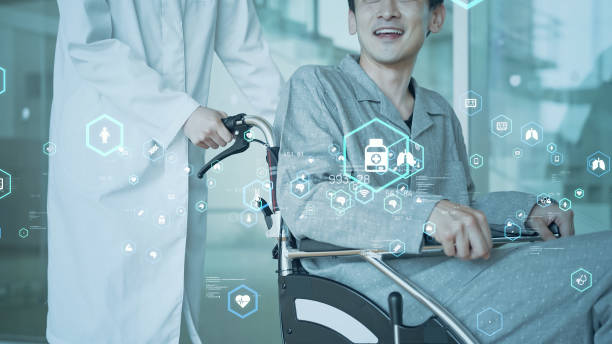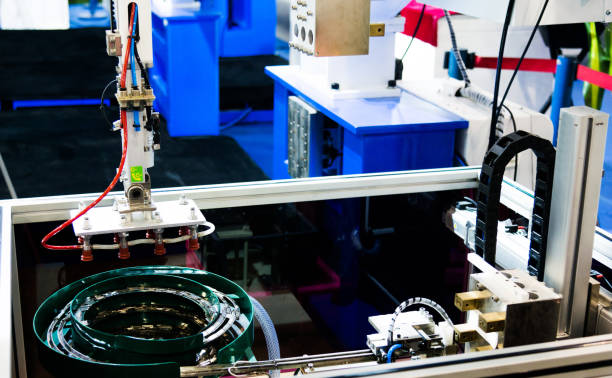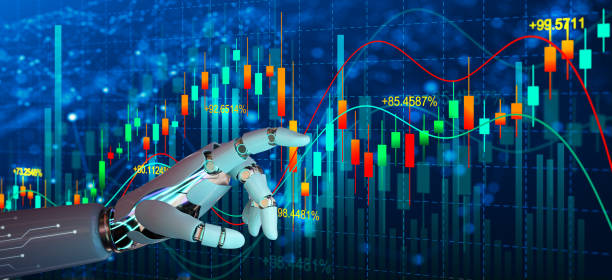Contents
- 1 Introduction
- 2 1. AI in Healthcare: Revolutionizing Patient Care
- 3 2. AI in Business: Enhancing Productivity and Efficiency
- 4 3. AI in Education: Personalized Learning Experiences
- 5 4. AI in Transportation: Transforming Mobility
- 6 5. AI in Entertainment: Creating Engaging Content
- 7 6. AI in Finance: Revolutionizing Banking and Investments
- 8 7. AI in Retail: Enhancing Customer Experiences
- 9 8. AI in Cybersecurity: Strengthening Protection
- 10 9. AI in Agriculture: Increasing Productivity
- 11 10. AI in Manufacturing: Streamlining Production
- 12 11. AI in Smart Homes: Improving Everyday Life
- 13 12. AI in the Legal Sector: Transforming Legal Practices
- 14 13. AI in Human Resources: Improving Recruitment
- 15 14. AI in Research and Development: Accelerating Innovation
- 16 15. The Future of AI: Emerging Trends and Challenges
- 17 The result
Introduction
Impact of AI on Modern Technology Artificial Intelligence (AI) has become an integral part of today’s modern technology. The influence of AI in the world of technology has been increasing day by day, and its student serf is not a single industry.
AI has colored every field, where it has revolutionized the fields of business, healthcare, education, and entertainment. Your articles will provide you with a detailed overview of AI’s impact on modern technology, helping you understand how AI will change the world of technology.
1. AI in Healthcare: Revolutionizing Patient Care

The impact of AI in the healthcare sector is significant. AI algorithms and machine learning techniques make clinical diagnosis easy and accurate. With the help of AI-powered tools, it is possible for doctors to analyze the symptoms of patients and diagnose them early.
This treatment plan can be customized and preventive measures can be increased. Predictive analytics is also being done with the help of AI, which enables timely intervention to identify future health risks.
2. AI in Business: Enhancing Productivity and Efficiency
The integration of AI into the business world is improving productivity and efficiency. Customer service is improved with the help of automated systems and chatbots, where AI provides 24/7 customer support.
AI-powered analytics tools also help optimize business strategies, streamlining sales, marketing, and supply chain management. Regarding the predictive capabilities of AI, businesses can predict future trends and adjust their strategies accordingly.
3. AI in Education: Personalized Learning Experiences
The role of AI in the field of education is also very prominent. AI-powered learning platforms provide students with personalized learning experiences, where tailored content is delivered based on their strengths and weaknesses.
Intelligent tutoring systems and AI-based educational apps offer students an interactive and engaging learning environment. Additionally, AI frees educators from administrative tasks, allowing them to focus their time on teaching and mentoring.
4. AI in Transportation: Transforming Mobility
The impact of AI in the transportation industry is transforming mobility. Autonomous vehicles and AI-powered navigation systems help improve traffic management.
AI algorithms analyze traffic patterns to suggest efficient routes for cars, such as reducing travel time and improving fuel consumption. Apart from this, AI-enabled smart infrastructure and intelligent transportation systems are also being developed, optimizing urban planning.
5. AI in Entertainment: Creating Engaging Content
The role of AI in the entertainment industry is also quite important. AI algorithms augment content creation and recommendation systems, delivering customized content to viewers based on their preferences.
Virtual reality and augmented reality experiences have also been enriched with the help of AI, creating immersive entertainment experiences. In addition, its AI-powered tools streamline film production and animation processes, improving efficiency for creative professionals.
6. AI in Finance: Revolutionizing Banking and Investments
The integration of AI in the finance sector is set to revolutionize the banking and investment process. AI algorithms enhance fraud detection and risk management, making financial transactions safer.
Investment platforms also use AI-powered analytics to predict market trends and improve investment decisions. AI-based financial advisors and rob o-advisors also provide personalized financial advice and portfolio management services to investors.
7. AI in Retail: Enhancing Customer Experiences
The impact of AI in the retail industry is to enhance customer experiences. AI-powered recommendation systems deliver personalized shopping experiences, recommending relevant products to consumers based on their preferences.
Automated inventory management and supply chain optimization are also being powered by AI, streamlining retail operations. Apart from that, AI-powered chatbots and virtual assistants improve customer support and fast track query resolution.
8. AI in Cybersecurity: Strengthening Protection
The role of AI in the cybersecurity domain strengthens security measures. AI-powered security systems enhance malware detection and threat analysis, which help identify and prevent cyber attacks.
AI algorithms also monitor suspicious activity for anomaly detection and behavioral analytics, enabling proactive risk mitigation. Ask Alva, AI-powered tools to streamline risk assessment and risk management.
9. AI in Agriculture: Increasing Productivity
Integration of AI in the agricultural sector increases productivity. AI-powered tools and sensors enhance monitoring of soil quality and crop health, as farmers gain insight into timely interventions and best farming practices.
AI algorithms also improve yield forecasting and resource management, which improve agricultural efficiency. In addition, autonomous machinery and drones are also automating the farming process, reducing labor requirements.
10. AI in Manufacturing: Streamlining Production

In the manufacturing sector, AI streamlines production procedures. Automation and robotics powered by AI make assembly lines and production processes more efficient.
Predictive maintenance and quality control are also being done using AI, as machinery performance can be monitored and defects can be identified in a timely manner. Apart from that, AI-powered analytics enhance supply chain management and demand forecasting.
11. AI in Smart Homes: Improving Everyday Life
The integration of AI into smart home technology improves everyday life. To improve the convenience and efficiency of AI-powered smart devices and home automation systems.
Voice-controlled assistants and intelligent home security systems also simplify home management, as homeowners get better control and security. Apart from that, AI-powered energy management systems optimize energy consumption and reduce utility bills.
12. AI in the Legal Sector: Transforming Legal Practices
Legal procedures are being altered as a result of AI’s impact on the industry. Legal research tools powered by AI quickly analyze legal documents and case law, enhancing legal professionals’ research efficiency.
Document automation and contract analysis are also being powered by AI, streamlining the legal process. In addition, AI-powered predictive analytics will help predict legal outcomes, leading to improved case strategies.
13. AI in Human Resources: Improving Recruitment
The role of AI in the Human Resources (HR) field is optimizing recruitment and talent management. AI-powered recruitment tools automate candidate screening and resume analysis, which streamlines the hiring process.
Employee performance management and talent development are also being leveraged by AI, as HR professionals get actionable insights and data-driven decisions. In addition, AI-powered tools increase employee engagement and satisfaction.
14. AI in Research and Development: Accelerating Innovation
The integration of AI in the research and development (R&D) field is accelerating innovation. AI-powered tools enhance data analysis and simulation, such that research results can be improved.
AI-powered algorithms also facilitate new discoveries and technological advancements, increasing R&D efficiency. Apart from this, AI is also being used to streamline scientific research and experiments.
15. The Future of AI: Emerging Trends and Challenges

In the future, the impact of AI may be even deeper and wider. Emerging trends such as quantum computing and definable AI will expand AI’s capabilities and create new possibilities. But, there are some challenges with AI, such as ethical concerns and data privacy issues.
It will be important to address challenges with future AI development and deployment and ensure responsible and beneficial use of AI technology.
The result
Impact of AI on Modern Technology AI has transformed modern technology and left its impact in every field. From healthcare to business, education, and entertainment, AI has enhanced processes and created new opportunities.
In the future, the role of AI will be even more critical and with its development will come new challenges and opportunities. Therefore, it will be imperative for us to embrace the AI-driven future and ensure responsible use of technology.





